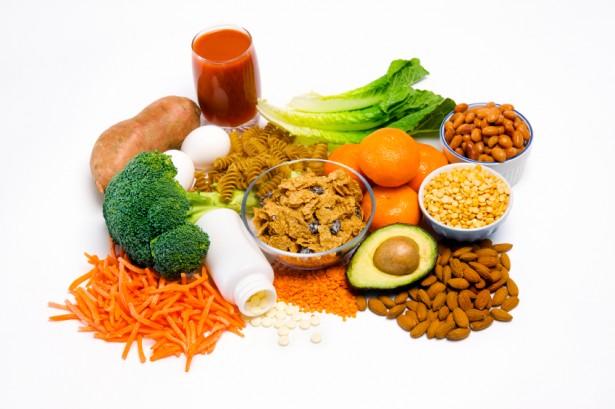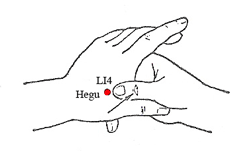 Folic acid is part of the vitamin B complex family and hence is a water soluble vitamin. The body does not store it and the excess gets removed from the body through urine. Hence, these vitamins must be supplied to the body from the daily food that we eat. In case the amount of vitamins received from food is less, we can still rely on folic acid 5mg tablets as supplement.
Folic acid is part of the vitamin B complex family and hence is a water soluble vitamin. The body does not store it and the excess gets removed from the body through urine. Hence, these vitamins must be supplied to the body from the daily food that we eat. In case the amount of vitamins received from food is less, we can still rely on folic acid 5mg tablets as supplement.
Good sources of folic acid are green leafy vegetables and fruits. It is essential to form healthy new cells. It is especially essential for women who are pregnant or trying to get pregnant. Ensuring adequate intake of folic acid before and during pregnancy will avoid some birth defects in the brain or in the spine of the baby.
What Are Folic Acid 5mg Tablets Used For?
Belonging to the vitamin B complex group, folic acid supplements are used in the treatment of:
- Anemia caused due to folate deficiency. It is caused due to improper absorption (celiac disease or sprue), malnutrition, or increased folate requirements by the body (pregnancy).
It is also used as prophylaxis for:
- Deficiency caused by side effect of medicines used in the treatment of epilepsy like phenytoin, phenobarbital and primidone
- Deficiency caused by kidney dialysis and long term RBC damage
- High risk pregnancies, where neural tube defects like spina bifida can be caused
Why Is Folic Acid Important?
Folic acid and folate together form vitamin B9, which is important for various body functions such as:
- Synthesis and repair of DNA and RNA
- Helps in rapid cell growth and division
- Production of red blood cells
- Avoidance of neural tube defects like spina bifida and anencephaly in brain & spine of babies – hence recommended to pregnant women
- Enhancement of brain function and improvement of memory which has been proven by researches
Recommended Daily Intake of Folic Acid
Getting a wide range of food can ensure the folic acid intake meets the RDA (Recommended Dietary Allowance), as it is present in many foods. The requirements would also depend on the age, gender and other factors like illness or pregnancy.
The RDA for different age groups is as follows:
For Infants:
The acceptable intake of folic acid for breast fed infants is listed below:
0 – 6 months: 65 mcg/day
7 – 12 months: 80 mcg/day
For Children:
1 – 3 years: 150 mcg/ day
4 – 8 years: 200 mcg/ day
9 – 13 years: 300 mcg/ day
For Adolescents and Adults
Men 14 years and above: 400 mcg/day
Women 14 years and above: 400 mcg/day
Pregnant girls 14-18 years: 600 mcg/day
Pregnant women 19 years and above: 500 mcg/day
Breastfeeding women 14-18 years: 600 mcg/day
Breastfeeding women 19 and above: 500 mcg/day
Why Should Folic Acid Be Taken Before and During Pregnancy?
Folic acid is one of the most essential vitamins when pregnant or when trying to conceive. It helps to prevent neural birth defects like spina bifida in the fetus. It is recommended to begin folic acid supplements when the woman is trying to get pregnant. A dose of 500 mcg per day is recommended till 12 weeks of pregnancy. In case the supplement is not being taken prior to pregnancy, it should be started as soon as the pregnancy is confirmed.
Besides the supplements, foods containing folic acid should also be incorporated in the diet – green leafy vegetables, fruits and brown rice. Some foods are fortified with it and can be added to the daily diet.
For women who are at higher risk of being affected by neural tube defects during pregnancy, the dosage should be higher of 5 mg per day till 12 weeks of pregnancy. The risk of these defects increases when:
- The woman or her partner have neural tube defect
- History of any previous pregnancy which was affected by neural tube defect
- Family history of neural tube defect
- Any case of diabetes
If the woman is on medication for epilepsy, higher dose of folic acid might be required. The doctor will recommend the perfect dose depending on the condition.
Which Foods Contain Folic Acid?
Besides taking folic acid supplements, the intake of foods rich in folate should also be consumed. Some of these foods are:
- Brussels sprouts, asparagus, broccoli, black eyed beans, baked potatoes, bran flakes, hard-boiled eggs, tinned salmon, yeast extract, orange or orange juice, brown rice, granary bread
Since it is water soluble, it would be wise to steam the vegetables rather than boil them, as the vitamin will dissolve into the water. Remember not to overcook the vegetables, as it would destroy the folic acid in the vegetables.
Watch the video to know more food rich in folic acid:
Does Folic Acid 5mg Have Any Side Effects?
Folic Acid supplements can cause side effects, but it is quite rare. These can be seen in more than 1 in 10,000 people but less than 1 in 1000. In case you experience any side effects, a doctor should be notified immediately.
- Allergic reaction to folic acid or hypersensitivity which can cause rash, swelling on the face or mouth, difficulty in breathing or swallowing, shock, sweaty skin, weak pulse, dryness of mouth and dilated pupils.
- Loss of appetite, bloating, flatulence or feeling sick






